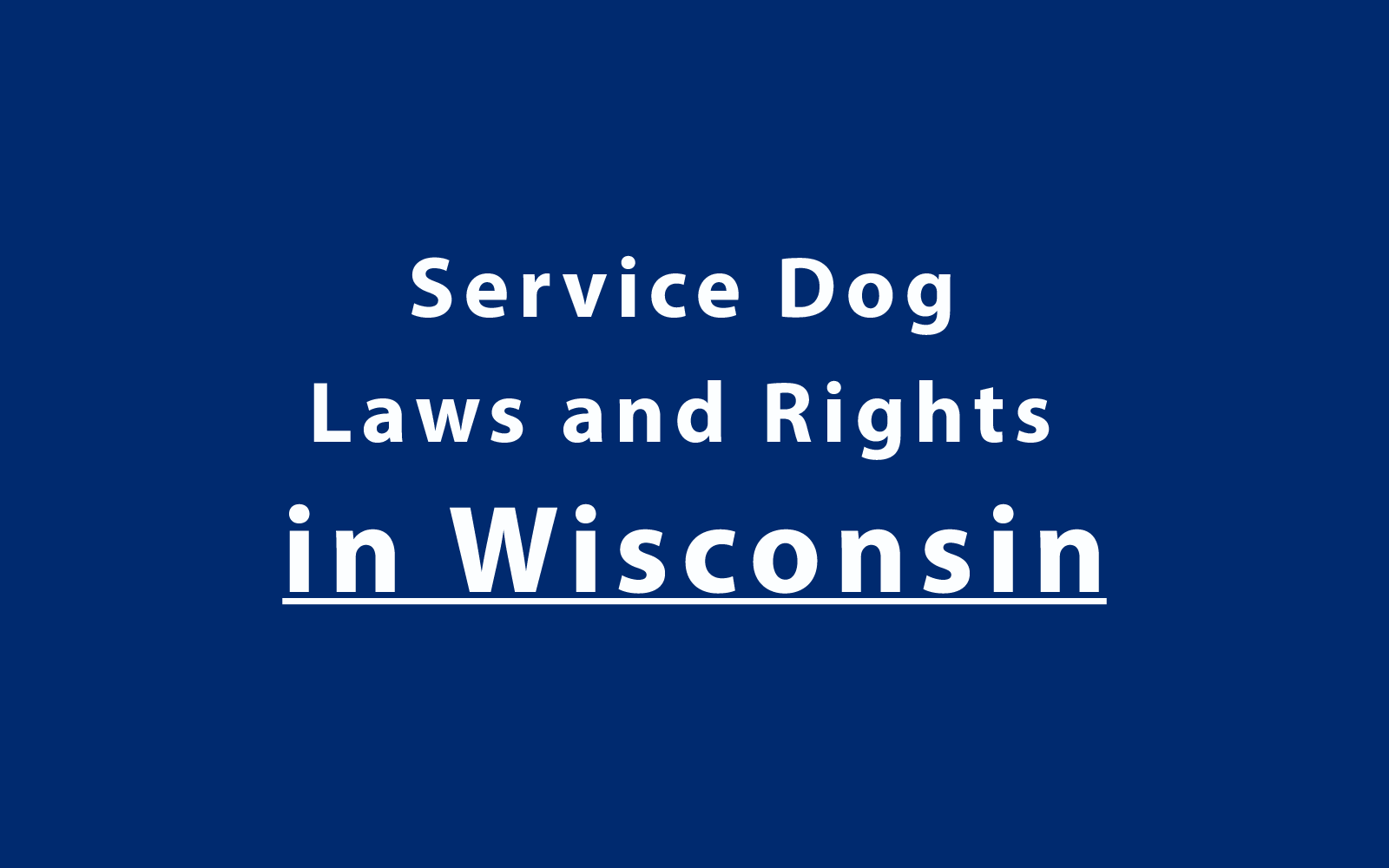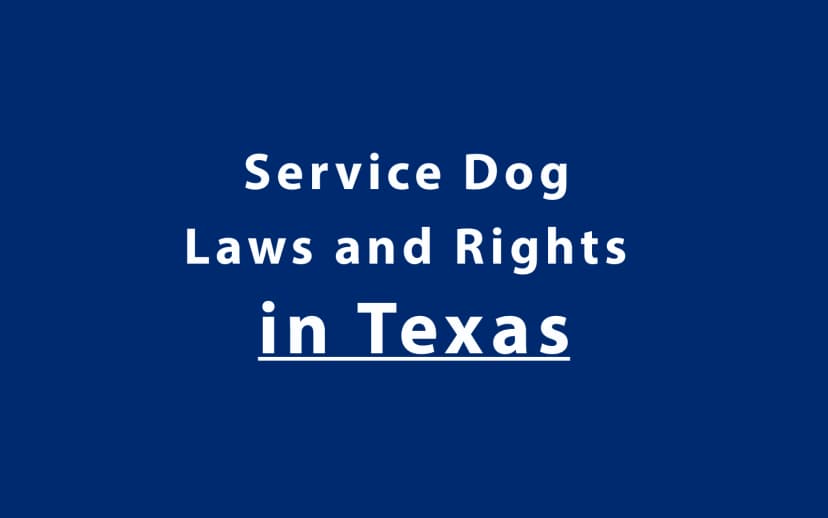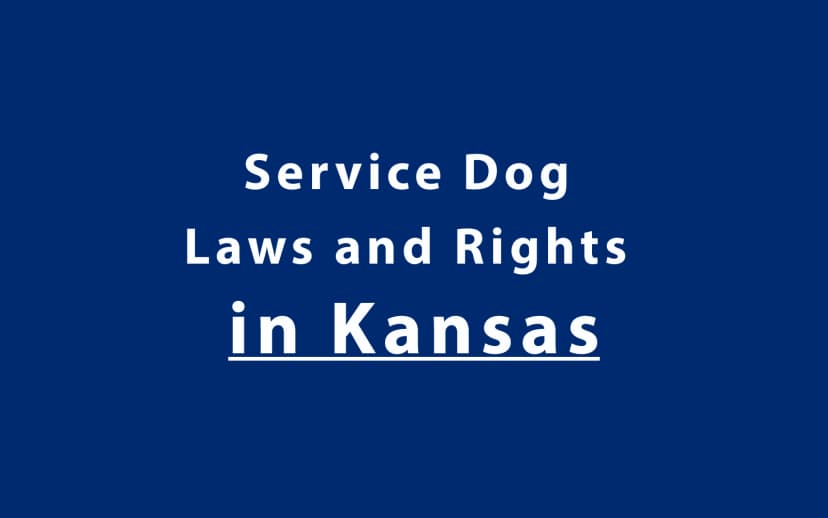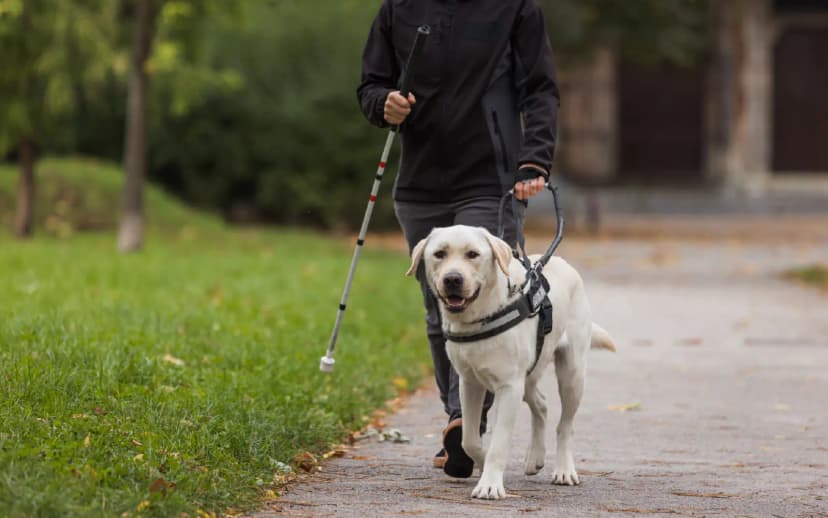Service Dog Laws and Rights in Wisconsin

Service dogs are critical to the independence and safety of individuals with disabilities. In Wisconsin, both federal and state laws provide strong legal protections for those who rely on these highly trained animals. This comprehensive 2025 guide outlines the service dog laws and rights in Wisconsin, including key definitions, public access policies, housing and employment protections, and more.
Definition of a Service Dog in Wisconsin
Under the Americans with Disabilities Act (ADA) and Wisconsin Statutes § 106.52 and § 951.01, a service dog is defined as a dog that is individually trained to perform tasks directly related to an individual’s physical or mental disability.
Examples of qualifying tasks:
• Guiding individuals with visual impairments
• Alerting individuals to sounds (e.g., doorbells, alarms)
• Providing physical support for mobility or balance
• Alerting to seizures or blood sugar changes
• Interrupting self-harming behaviors, calming during PTSD episodes
Important clarification:
• Emotional Support Animals (ESAs) are not considered service animals under the ADA or Wisconsin law.
• Only dogs qualify as service animals for public access under Wisconsin and federal law.
Public Access Rights in Wisconsin
Service dog handlers have the right to be accompanied by their dog in all places of public accommodation under the ADA and Wisconsin Equal Rights Law.
Places that must allow service dogs include:
• Restaurants and cafés
• Grocery and retail stores
• Hotels and lodging facilities
• Parks, museums, and recreational areas
• Medical facilities and hospitals
• Public transportation and terminals
Businesses may only ask two questions:
1. Is the dog required due to a disability?
2. What work or task has the dog been trained to perform?
They may not:
• Demand proof of certification or ID
• Ask for a task demonstration
• Inquire about the handler’s specific disability
Responsibilities of the handler:
• The dog must be under control at all times (leash, harness, or voice control)
• The dog must be housebroken and non-disruptive
If the dog poses a threat or is out of control, access may be restricted.
Housing Rights in Wisconsin
Under the Fair Housing Act (FHA) and Wisconsin law, individuals with service dogs or ESAs are entitled to reasonable accommodations in housing, even in pet-restricted properties.
Housing protections include:
• No-pet policies must be waived for service animals
• Landlords cannot charge pet fees or deposits
• No restrictions based on breed, weight, or size
Documentation may be requested only if:
• The disability and need for the animal are not readily apparent
• A healthcare professional may verify the need
What landlords cannot do:
• Require proof of training or certification
• Demand detailed medical records
Complaints can be filed with the Wisconsin Equal Rights Division or the U.S. Department of Housing and Urban Development (HUD).
Employment Rights in Wisconsin
Under ADA Title I and Wisconsin Fair Employment Law, employees with disabilities may request to use a service dog as a workplace accommodation.
How to request an accommodation:
• Submit a written request to the employer
• Provide supporting documentation if the disability or need is not obvious
• Participate in an interactive dialogue to find a reasonable solution
Employers must accommodate unless:
• The accommodation creates undue hardship
• The dog poses a safety risk or disrupts essential functions
Employees may contact the EEOC or the Wisconsin Department of Workforce Development (DWD) if rights are denied.
Travel & Transportation Rights
Air Travel (ACAA):
The Air Carrier Access Act allows service dogs to accompany their handlers in the aircraft cabin at no charge.
Airlines may require:
• Completion of the DOT Service Animal Air Transportation Form
Ground transportation (ADA):
Service dogs are permitted on:
• City and intercity buses
• Trains and commuter rails
• Ferries and airport shuttles
• Uber, Lyft, and other ride-sharing services
Drivers who refuse service dogs may face penalties or be removed from the platform.
Service Dogs in Schools and Education
K-12 Education
Public schools must allow service dogs to accompany students under the ADA and Section 504 of the Rehabilitation Act.
Requirements:
• The dog must be under the student or assistant’s control
• Schools cannot impose fees or require proof of training
Colleges and Universities
ADA Title II and III require higher education institutions to allow service dogs in dorms, classrooms, dining halls, and events. Coordination with Disability Services is recommended.
Training and Registration in Wisconsin
There is no state-mandated registration or certification process for service dogs in Wisconsin.
Legally valid service dogs must:
• Be task-trained to assist with a disability
• Be under the control of the handler
• Demonstrate calm, obedient behavior in public settings
Voluntary tools available:
• Public Access Tests (PAT)
• Service dog ID kits and vests (not legally required)
Training options:
• Self-training is permitted
• Professional training services are available
• Online programs like those at AssistanceDogPartners.org offer accessible alternatives
Fraud and Misrepresentation
It is illegal in Wisconsin to misrepresent a pet as a service animal.
Potential penalties include:
• Civil fines or removal from premises
• Criminal charges for repeated offenses
Misrepresentation harms legitimate service dog users and can result in legal consequences. Business owners can report suspected fraud to local law enforcement.
State and Local Resources
• Wisconsin Equal Rights Division – Public access and housing complaints
• Disability Rights Wisconsin – Legal advocacy and support
• Department of Workforce Development (DWD) – Employment issues
• AssistanceDogPartners.org – Training, ID kits, and virtual certification support
• Local trainers and programs in Madison, Milwaukee, Green Bay, and Eau Claire
Frequently Asked Questions (FAQs)
1. Is service dog registration required in Wisconsin?
No, it is not legally required.
2. Are psychiatric service dogs protected?
Yes, if they are task-trained.
3. Can my landlord charge a pet fee for my service dog?
No, service animals are not pets.
4. Can I train my own service dog in Wisconsin?
Yes, self-training is permitted.
5. What if I am denied access to a public place with my dog?
You can file a complaint with the DOJ or the Wisconsin Equal Rights Division.
Conclusion
Wisconsin provides comprehensive protections for individuals with service dogs in public places, housing, employment, and education. While there is no requirement to register a service dog, handlers are expected to ensure their dog is trained and well-behaved. Optional tools like ID kits, Public Access Tests, and professional support—available through AssistanceDogPartners.org—can help reduce friction and educate the public.
By staying informed and respectful, handlers can navigate life in Wisconsin with confidence and legal backing.



